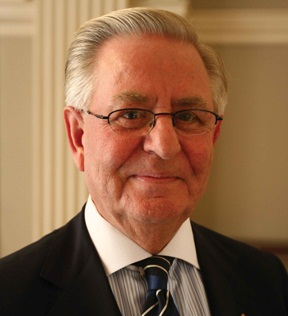
I am sad and angry. Saddened by horrifying reports of sexual assaults that happened in Tahrir Square at night and angry because I cannot understand how the expression of a political view translates into mobs assaulting woman who are expressing their opinions. The aftermath of sexual violence reverberates through the years that follow and leaves those affected changed forever. And the fact they occur with such frequency infuriates me.
The week did not start this gloomy though. The demonstrations last Sunday were a sight to behold. Millions upon millions of all ages and backgrounds marched side by side, the streets roiling with red, white and black flags and the thunder of that one word shouted by everyone: Irhal, Leave. The general mood seemed determined yet festive; they were marching for a better life and a better country. There were no political banners or flags anywhere; these were Egyptians and they marched for the betterment of their motherland. It was an impressive sight.
And then, late at night, the reports of sexual violence started to show up on Twitter, with desperate pleas from the different citizen initiatives for extra volunteers. Organised groups of men targeted women in the enthusiastic crowd and isolated them from the fray, to subject them to the vilest and most aggressive forms of sexual violence possible. Volunteers of different initiatives, such as Tahrir Bodyguard and Operation Anti-Sexual Harassment (OpAntiSH), converged on any reported assaults happening, but often faced violence themselves as they attempted to rescue the women under attack.
One of our reporters volunteered after finishing his work reporting on the protests at the presidential palace that night. He described how a central operation room coordinates the teams on the ground and when an assault is reported, a group of volunteers hastens to the location where they are confronted by a frenzied mob surrounding a woman. The way the volunteers work is deceptively simple: throw yourself in the mob and surround and isolate the woman by forming a human chain around her.
The reality is anything but simple; it is dark, the surging mob is in no mind to give up on their assault, the woman is in physical and psychological pain and it is impossible to tell who is trying to help and who is using it as an excuse to continue attacking the woman. That night there were people who did try to help though; a tea vendor poured his whole supply of hot water on the mob to help disperse them and another volunteer brought his vicious looking dog to help ward off the crowd.
Getting to the woman and stopping the assault is only the first step, finding a way to get her away from the attackers can prove to be more difficult. The volunteers try and find places where she can hide, like inside a fence or building, while they continue to guard the premises until the mob gives up, and that can take quite some time.
The aftermath of such assaults is long and painful. Several women have needed hospitalisation and even surgery after the violence they were subjected to. Horrific as these injuries are, physical wounds do usually heal with time, while the psychological effects often last much longer and can be equally if not more severe than the visible wounds.
Seeing such violence firsthand also leaves the volunteers shaken. Hearing about it, reading testimonies or seeing videos is very different from being confronted with the violence of a mob hell-bent on violently attacking and sexually assaulting a woman. My colleague told me he no longer sees Tahrir the same way, that he is more aware of the vulnerable people that are in the crowd and the groups that are not there to protest but to attack. He summed up his experience as something that was equally awful and important, and that he will volunteer again.
The fact these initiatives exist is wonderful, and they have done a lot for both women under attack and to raise awareness of the systematic sexual violence targeting women in demonstrations. But, in the words of my colleague, the fact that groups operating outside the law, as vigilantes, are needed to defend women from being attacked signals a lack of leadership and the desperate need for the issues that cause this behaviour to be addressed.
I was angry and sad when I watched my colleague struggle to find words to describe what the worst thing was about his experience and coming up short. He said he had seen people killed before in previous clashes and had found a way to deal with that, but when he got home the night of 30 June he had a hard time going to sleep.
What he and the other volunteers may not know, but I can tell them from experience, is that the fact they show up matters enormously. For the general public because it shows there is a way to counteract this terrible trend. For the women they protect and save from further assault. The fact they show up means that they care, that there are good guys that come and help. Something that can help heal some of the psychological scars of the women that have been attacked as well as society at large.

